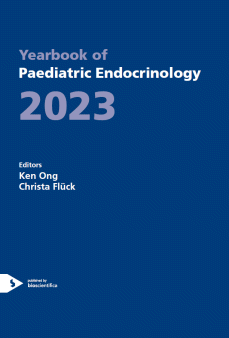9. Obesity and Weight Regulation
Patient Care: Bariatric Surgery, New Drugs, and Appropriate Language
ey0020.9-16 | Patient Care: Bariatric Surgery, New Drugs, and Appropriate Language | ESPEYB20
9.16. Metabolic and bariatric surgery versus intensive non-surgical treatment for adolescents with severe obesity (AMOS2): a multicentre, randomised, controlled trial in Sweden
K Jarvholm , A Janson , M Peltonen , M Neovius , E Gronowitz , M Engstrom , A Laurenius , AJ Beamish , J Dahlgren , L Sjogren , T Olbers
ey0020.9-17 | Patient Care: Bariatric Surgery, New Drugs, and Appropriate Language | ESPEYB20
9.17. Once-weekly semaglutide in adolescents with obesity
D Weghuber , T Barrett , M Barrientos-Perez , I Gies , D Hesse , OK Jeppesen , AS Kelly , LD Mastrandrea , R Sorrig , S Arslanian , STEP TEENS Investigators
ey0020.9-18 | Patient Care: Bariatric Surgery, New Drugs, and Appropriate Language | ESPEYB20
9.18. Say what you mean, mean what you say: The importance of language in the treatment of obesity
N Fearon , A Sudlow , CW le Roux , DJ Pournaras , R Welbourn




